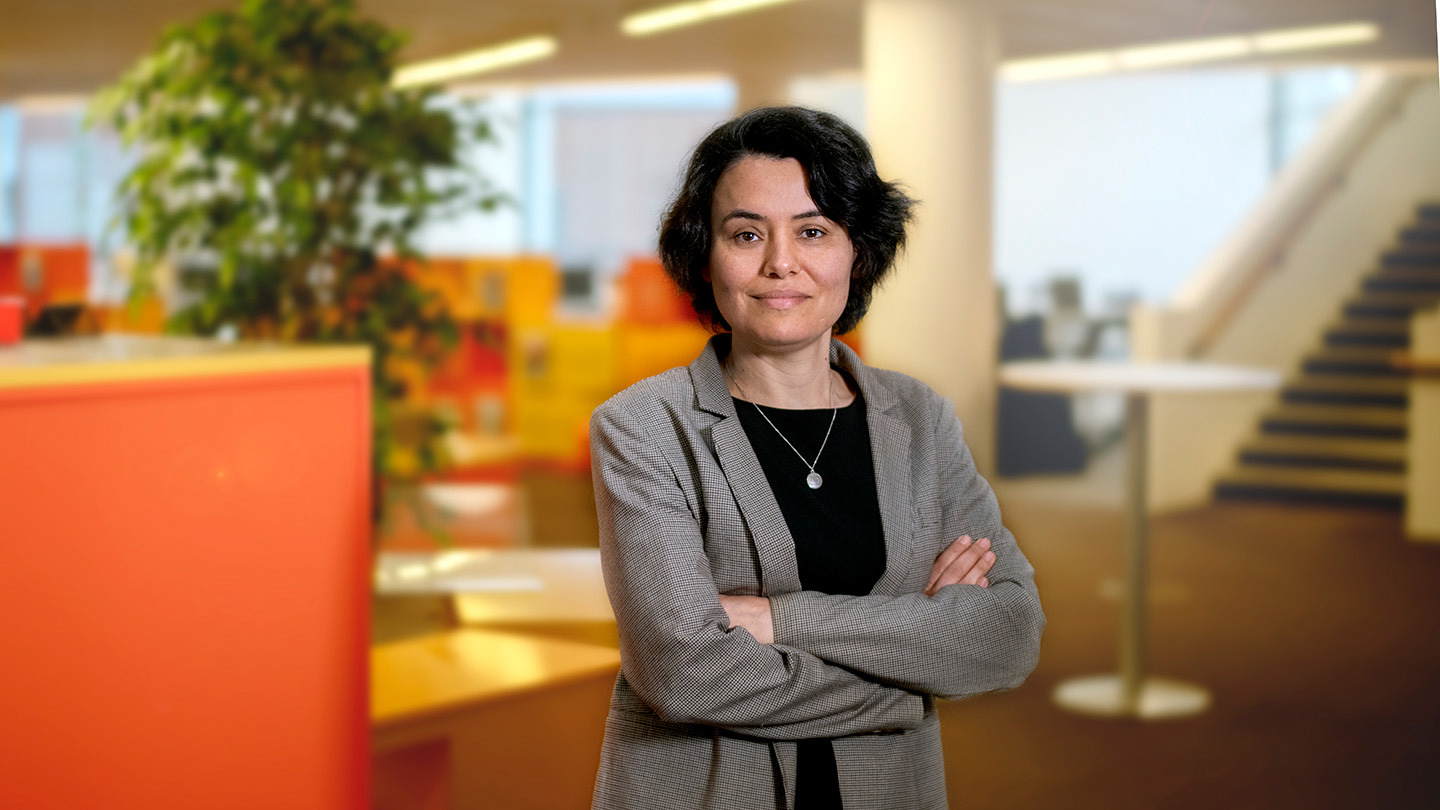Akram Zamani likes to take on challenges and think creatively – for a sustainable future
2025-04-16

According to recent figures from the Swedish National Food Agency, each household in Sweden throws away about 15 kilos of edible food, mostly fruit, vegetables and bread, per person every year.
“We are not good at taking advantage of our resources. Far too much food is thrown away – food that could have been saved and turned into something good,” said Akram Zamani.
- Akram Zamani will be installed as professor at the university's Academic Ceremony. On Thursday 8 May, she will give an open inaugural lecture entitled “The Role of Industrial Biotechnology in the Material Revolution of the Future.”
Read more about the inaugural lecture.
Driven by a desire to contribute to the green transition
The desire to contribute to both reduced food waste and the transition to sustainable bio-based materials, which are crucial for a green transition, has shaped her academic trajectory. It revolves around developing environmentally sustainable methods to make use of the complex and abundant compounds found in organic waste, either as raw materials or precursors to high-value products. These materials have a wide range of applications, from products for everyday consumption to advanced healthcare products.
“The possibilities are many; there is great potential,” said Akram Zamani.
For nearly 20 years, her work has revolved around filamentous fungi, nature's recyclers, which are known for their ability to break down organic matter and return nutrients to the ecosystem. This research has led to the development of innovative materials produced from fungi grown on organic waste, including fungal textile fibres, leather-like materials, bioplastics, paper-like materials and biomaterials.
“We have seen that bread in particular works well in the cultivation of microorganisms. It contains almost everything needed and is one of the best materials we have tested.”
The knowledge must be put into practice
She states that science has come a long way – and the goal is that the collected knowledge can be put into practice within a few years.
“We are still in the research phase, but I really hope that we can come up with something that can soon be used in society and be useful.
Until now, the production of textile fibres has been possible in small quantities, but now a prototype is being developed that will pave the way for scaling up.” At the same time, more research is needed.
“Today, we have a much better understanding of how these small microorganisms work and how we can control them and make them grow in a way that is good for textile fibres or leather-like materials. Our knowledge is constantly increasing, but there is still much to learn.”
Now she is looking forward to developing herself more in the field as a professor.
“It feels wonderful and exciting. It’s been a long journey. Now it feels good to be there, but it also means that new challenges are on the way. It's a new beginning again,” she said with a laugh.
Don't be afraid of challenges
However, challenges are not something Akram Zamani dislikes. On the contrary – provided that they are reasonably under control.
“Research should be difficult. If it were simple, there would be no research, as I usually say to my students and doctoral candidates. Research in itself is challenging, because we don't know. We have to test and find new ways to achieve improvements. And I love it!” she said, pleased and grateful for her new role and to be active in this exciting field that has a key role to play in the future.
“The shift towards sustainable bio-based materials is no longer just a research interest, but a global necessity. My journey in industrial biotechnology continues with my ambition to expand the boundaries of materials science and biotechnology, and accelerate progress towards a circular, bio-based economy,” said Akram Zamani.
Akram Zamani
Lives: in Borås
Family: My husband and our 9-year-old son
Interests : Nature walks and discovering new places through travel
On a day off: Take a walk in the woods with my family
Unknown talent: Modifying recipes and succeeding in making food even tastier
Passionate about: Contributing to scientific progress that leads to real societal benefit
Be inspired by: Nature's smart systems
My best tip for junior researchers: Dare to test your ideas – even when they feel impossible. This is often where the biggest discoveries begin
Akram Zamani was named Professor of Industrial Biotechnology at the University of Borås in December 2024. She received her doctorate in biotechnology from Chalmers University of Technology in 2010. Prior to that, she earned a Master's degree in Chemical Engineering with a specialisation in Biotechnology in 2006 and a Bachelor's degree in Chemical Engineering with a specialisation in Polymer Engineering in 2004, both from Isfahan University of Technology. She has previously held academic positions as Associate Professor (2019–2024) and Assistant Professor (2014–2019) at the University of Borås, as well as assistant professor (2011–2014) at Isfahan University of Technology. Akram's research focuses on developing sustainable bio-based materials from waste resources through innovative bioprocesses. Her research is in line with the vision of the Swedish Centre for Resource Recovery, which strives to transform waste into valuable, sustainable products that benefit both society and the environment. Akram actively collaborates with both academia and industry to promote bio-based innovations for real-world applications.
Read more
Akram Zamani’s
Read more about Academic Ceremony
More about the research area Resource recovery
Lena Carlsson
Anna Sigge

